Seeming
SOL: A Self-Banishment Ritual
Artoffact Records
We can distinctly recall having a devil of a time trying to communicate the connection between the first Seeming record and the longer histories of gothic and industrial music Alex Reed’s been tied to at various points in his careers as a musician, academic, and author. Sophomore Seeming LP SOL: A Self-Banishment Ritual doesn’t make things any easier on that count. It is explosive and borderless in its musical approach and its thematic overlaps with gothic and industrial culture – the flight from modernity and the existential ennui which accompanies the anthropocene – are concerns far larger than any particular subculture. But SOL grants us a better sense of how Seeming as a project operates, of the mechanics Reed employs to draw listeners into a world poor in name and means but rich in rhythm and communion.
Reed recently told us he views SOL as a literal sequel to 2014’s Madness & Extinction, and spending some time with the former’s lyrics and musical range will definitely yield connections between the two LPs. The ambitious musical scope of M&E is pushed out even further, drawing in soul, funk, and R&B stylings, though none of SOL‘s tracks ever feel like “pure” exercises in those genres, nor in those we’re more accustomed to associating with Reed’s work (folk, goth, EBM). That could just be a function of how present Reed is as a vocalist; his tenor strides confidently across the record, even when it’s communicating panic and despair.
And those are certainly sensations which are bound to crop up when one’s dealing with SOL‘s themes. Few neologisms seem as topical as “ecoanxiety”, and Seeming have honed in on it and provided the soundtrack, albeit from the perspective of the other side of armageddon. The epoch which seems to be passing or changing may be human in origin, but its effects are much broader, and Reed strikes upon the quietus of the entire category of the human as the only option in the wake of such upheaval. To be clear: this isn’t a record about suicide at the individual or species-wide level, but a meditation on what it might mean to give up the taxonomy of the human and to embrace the nameless world of the animal, the shrub, the river. Think of it as “A Report To An Academy” in reverse, perhaps. It isn’t clear whether we’re meant to take the “self-banishment ritual” subtitle of the record to mean that there’s a single protagonist going through said process, but if it’s tempting to try to sketch out a clear concept record narrative rather than just accepting SOL as a set of thematically consistent tunes, that probably speaks to the sheer richness of Reed’s language (and his admirable avoidance of irony) more than anything.
The LP’s first shot across the bow might be one of its most-telling. “Doomsayer”‘s disco strings, burbling electropop bassline, and polyrhythmic percussion eventually giving way to washes of static, sad trumpets and accented dulcimer at turns, even as Reed casts himself as both the titular prophet of doom and desperate confessor making meta examinations of the track itself. It’s a song of movements for an album that deals in the same, shifting effortlessly as needs be from one sound to the next. That fluidity means the uptempo cabaret of “If I Were You” can easily transition into the desperate dual-narrative of “Zookeeper”, a song that juxtaposes chunky Chic guitar strumming with two very different characters from Reed, one as a calmly doubting inner voice and one as desperate chronicler of some unspoken world-ending disaster. On through the LPD-esque flute and synthwork of “The Unspeaking” and the admirably sticky collaboration with indie rapper S∆MMUS – as good a pure pop song as Reed has ever written – Seeming sloughs off each skin and takes the next form required, held together by an understanding of songcraft that transcends any stylistic marker or artistic allusion.
The intertextual nature of these songs really starts to manifest in the album’s center, especially as the complex web of thematics expands ever outwards. Is the oooh-woooing intro of the woozy horn-inflected “Knowledge” a howl for the wolves Reed longingly invokes at the outset of “Feral”? When you know what comes before and what follows it, does “Phantom Limb” take place in the same unnamed wilderness the record is constantly pushing towards? How interesting is it that in SOL‘s lyric booklet the beginning and ending lines of songs are transposed into the preceding and following number? The literary devices Reed employs not just in his words but in the actual composition are myriad: songs foreshadow and allude to one another, and in some cases quote each other each other. There’s even an epigraph right in the heart of things, “Next time lets get raised by wolves” being perhaps the best encapsulation of the LP possible in six words.
Fitting for an album which sets itself to the issue of how to continue on after an ending, SOL is rife with ‘false finishes’; pieces which seem to close a record out only to be followed up by another moment which extends from its predecessor but also seems to promise termination. Drawing upon fearful childhood respect for the unknown, “The Wildwood” marries funk guitar to windswept, shadowy forest, recalling Kate Bush’s “King Of The Mountain”. Coming after the sardonic robo-paean of “I Love You Citizen”, in which the nation-state itself seems to be entreating the individual to stay within its confines, the flight into cthonic nature unstuck in time would seem to be the end, but no. “At The Road’s End”, an ambitious four-part suite, presses on through electro-soul and into space rock, rendering the escape from the self into an astral journey. And yet even after the effacement of harmony, tempo, and identity which a noise freak-out by no less an icon than Merzbow heralds, SOL endures for a final reprise. “Talk About Bones” a recapitulation of the record’s ideas, the passing on of the wisdom earned by the ritual of SOL to the doubters mentioned at the outset of “Doomsayer”. (Can a story of self-banishment actually be a Bildungsroman? We’re not sure…)
The astonishing density of ideas, sounds and styles that make up Seeming’s sophomore LP are dizzying, and yet their accumulated weight never slows or delays its inevitable push from its first notes to its final echoing cymbal crash, the latter preceded by one of the album’s invocations of the morse code for distress. It’s an album of ideas, one of movements and grand gestures and quiet realizations, of messages coded and decoded on the fly as it sings and plays itself into existence. It’s weird to imagine that SOL could somehow be so singularly a product of Alex Reed’s particular muse and yet seem so much like an entity unto itself. And perhaps that’s where the self-banishment ritual the title alludes to comes in; can the maker make something so vast and so full of possibilities and emotion that they themselves are subsumed in the fantastical life of their creation?
Highly recommended.

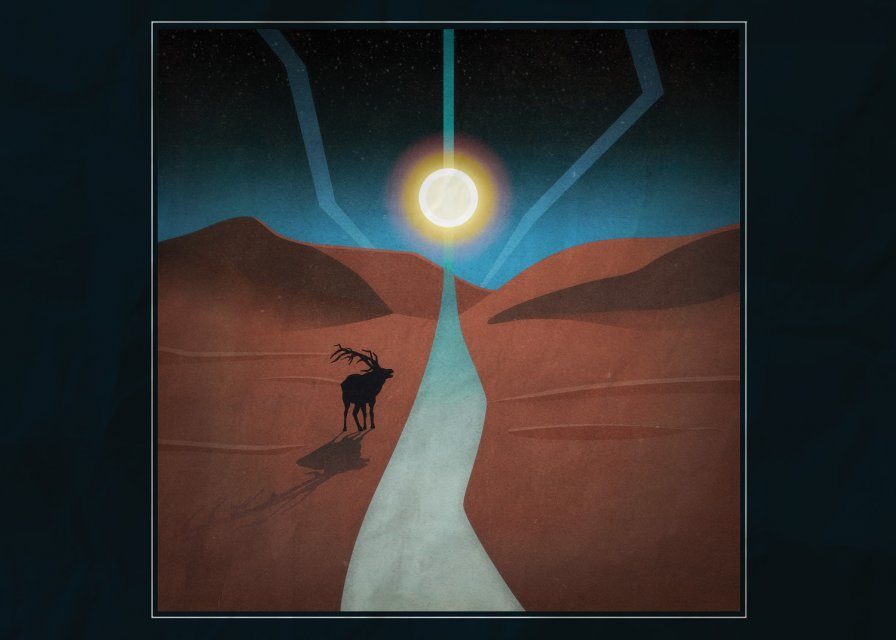
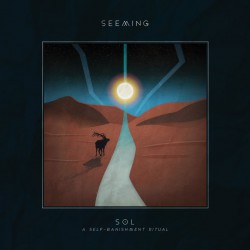
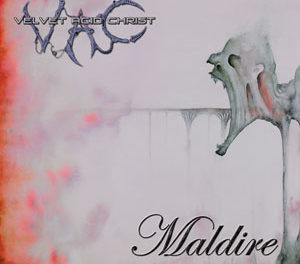
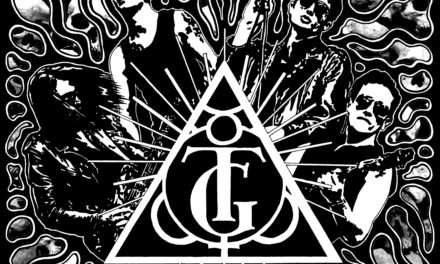
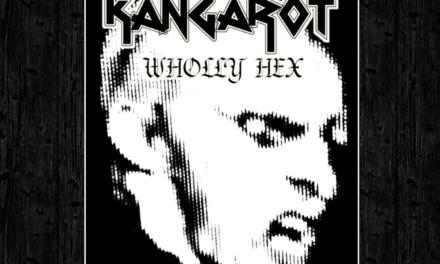
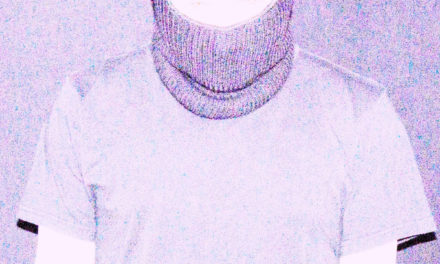
I’ve only listened to it all the way through once, so I’m still digesting it. But the first listen didn’t take hold of me the way Madness & Extinction did. I remember being absolutely floored the first time I heard “The Burial.” SOL seems more ambitious musically and thematically, and as such it feels like the best elements of Madness & Extinction are less apparent… the foreboding sense of doom that permeated the entire album, the tidy theme that made every track on it part of a cohesive experience, the whimsical lyrics of songs like “Goodnight London” that made much of it feel like a folk tale.
But Seeming is far too challenging to write off after one listen, so I’m looking forward to digging into it more. So far, favorite tracks are I Love You Citizen and The Wildwood, which unsurprisingly sound most like Madness & Extinction. I really dig Stranger as well, and At the Road’s End is a bloody epic I suspect will continue to charm me.
Helluva review for a helluva album. Wow. Madness and Extinction took several years for its charms to grow on me, but this one doesn’t give you the chance to wait. The overall “bigger” sound makes a more immediate, attention-grabbing impact, but it also leaves me feeling a little overwhelmed. Been listening repeatedly since it came out, mind’s whirling. It’s truly rare to find an album that truly is 100% killer 0% filler like this. I feel… a little sick, actually, like I’ve just gorged myself on an endless buffet of absurdly rich and exotic foods and now I’m dragging my swollen stomach around. Probably a sign I should let this digest and listen to something less… hmm, adjectives… less *epic* for the rest of the evening, but I don’t think I can. These songs are just too good. It’s tough to pick a favorite but I have to go with “Zookeeper”. A painful choice (sorry, “Wildwood” and “Stranger”), but the only one I can make truthfully.
Sure, not everything’s clicking yet, but it took me about two years to really start appreciating Madness and Extinction, so I’m already ahead of schedule. I can’t even imagine how I’ll be feeling about this album in 2020.
Also side note: Seeming songs are THE most fun to sing of any artist I know of. Probably result of Alex’s composition genius. Hopefully my neighbors won’t be too upset by my shower symphonies in the next couple weeks. DOOM-SAY-ER-HEEEEEEEEEEEEEEEEEEER!!!!!!!!
I am loving this album so hard, it’s actually taken me by surprise. I loved “Madness & Extinction”, though for me it occasionally suffered from a similar issue I had with some ThouShalNot tracks, which was a certain detachment or even sterility that came from the (undeniably brilliant) craft of the wordplay and thematic development of the song. Not irony, as you guys have pointed out, he is always sincere and committed, but to me felt like holding back emotionally at times and just not “cutting loose enough”.
Sounds like Alex is really throwing it all in the ring on this one though, while still being wonderfully poised and measured in his craft. Also, the blues and soul and (gasp) disco elements etc really add a visceral dimension which was, maybe not lacking before, but certainly less consistent, IMO.
(How awesome is the whole bonus CD, by the way, especially “Articles of Secession”? “We secede from pants. Seriously, fuck pants.” Genius.)
Also, the album “Diamond Dogs” keeps playing in my head (in perfect thematic harmony) when I listen to this album, I literally laughed with joy when I heard the “1984” reference in the strings of “Zookeeper”, and other tracks.
I’m waiting for Legend’s album to prove me wrong, but I’m pretty sure this will be my album of the year. And I suspect I’ve only scratched the surface. 0_o
You know, you may have just hit the nail on the head as to why it took me so long to get into M&E with your comment about detachment. Even though I’ve grown to adore it, Madness and Extinction still sounds to me like an album made by an academic with a passion for music, while SOL feels like an album made by a musician with a passion for academia. Both are obviously the product of a very intelligent and talented person, but the difference upon listening for the first time is immense.
And seriously, Fuck Pants.
@Valek – good to know it wasn’t just me…as someone who often over-analyses everything to the point of paralysis, sometimes I wonder if I’m just projecting when it comes to this sort of stuff.
But yeah, Madness & Extinction is a fantastic album, but it rarely hit me as deep in my bowels, balls and hips (and brain, but that’s a given with Alex’s work) the way this album does…every single track, even the slower ones, has a groove and a looseness to it that co-exists with a sense of urgency and primal passion. I’m currently trying to figure out how to fit “The Wildwood”, of all tracks, into my next DJ set, to me it’s almost literally a “magickal” transformative song, which on a big sound system will be quite special, I suspect. 0_o